This past year was, without a doubt, my best reading year yet.
I read more books than ever before, but only seven truly stood out—the kind of books that linger in your mind long after you’ve turned the last page.
Some stories fade quickly; these did the opposite. Whether it was the characters, the writing, or something I can’t quite put into words, they stayed with me, popping up in my thoughts at unexpected moments.
I measure a book’s impact by how quickly I feel the need to reread it.
If I finish a novel and immediately want to dive back in, that’s a sign it wasn’t just compelling—it was unforgettable. And these seven? They passed that test with flying colors.
If you’re after stories that captivate, surprise, and refuse to fade from memory, here are my top seven books of 2024—so good, they’re already on my reread list.
1. My Brilliant Friend by Elena Ferrante
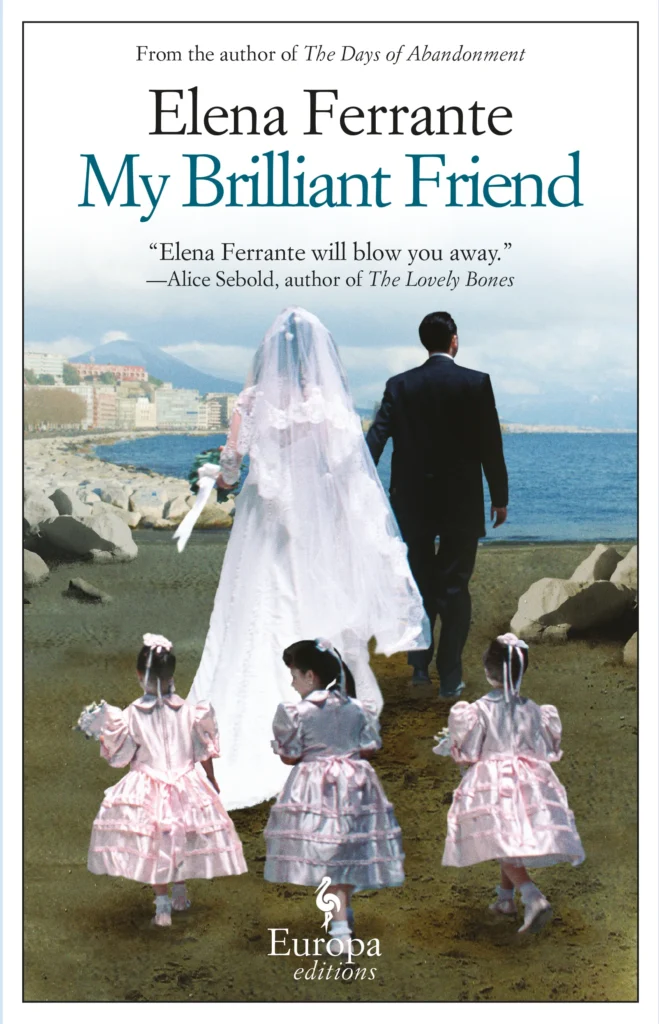
This is the first novel I’ve read in such a short period because the story was so compelling and I needed to know what happens next.
It is the first in Ferrante’s Neapolitan Quartet. It follows the lives of two friends, Elena and Lila, from their childhood in a poor neighborhood in post-war Naples, through adulthood, and their complex and intense relationship.
Their bond is marked by love, admiration, jealousy, and competition, reflecting the multifaceted nature of close friendships.
I think this is the first novel I’ve ever read that clearly showcases how people can both inspire and challenge each other in ways that are deeply formative and transformative.
Education is a central theme in the novel.
Elena sees education as her pathway to escape the oppressive environment of their neighborhood, while Lila, despite her sharp intellect, becomes trapped in an early marriage and the expectations of their community.
The novel shows how the different levels of education between the two friends create a growing rift, as Elena moves into intellectual and literary circles while Lila remains tethered to the neighborhood.
What I found particularly interesting is how Lila’s brilliance and rebellious nature often push Elena to excel academically and socially.
But, at the same time, Elena harbors both awe and resentment toward Lila’s magnetic personality and intellect.
Ah, how so complicated female relationships can be!
The novel also examines the rigid gender roles imposed on women in a patriarchal society.
Both Elena and Lila grapple with the societal pressures of marriage, motherhood, and subservience to men.
Lila’s character, in particular, serves as a counterpoint to these norms.
I found her defiance of traditional roles—her refusal to conform, her sharp critiques of societal structures, and her moments of rebellion quite refreshing.
This story is so gripping that in 2024, The New York Times placed it at number one on its list of the 100 best books of the 21st century.
I really can’t wait to read the other books in this series.
2. City of Girls by Elizabeth Gilbert
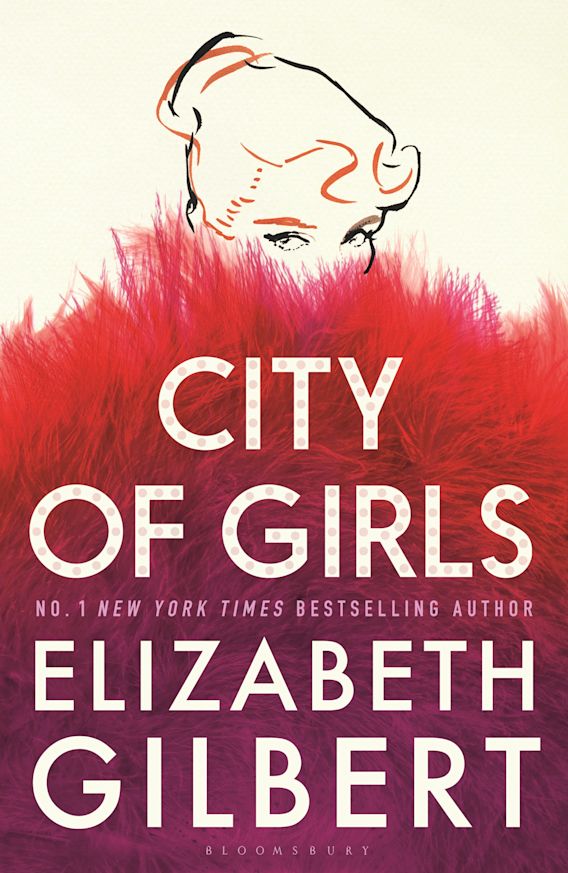
This novel was an absolute delight.
Every time I picked it up, the experience was as intoxicating as binge-watching my favorite show, tea in hand, savoring every twist, turn, scandal, and dazzlingly bad decision.
It follows the life of Vivian Morris, a young woman who is sent to live with her eccentric aunt Peg in New York City, after being expelled from college.
The story is set in the 1940s, against the backdrop of the Lily Playhouse, a struggling theater that Vivian’s aunt, Peg owns.
It explores themes of self-discovery, sexual freedom, female independence, friendship, and regret.
We follow Vivian through her mistakes and triumphs, and how she grows from a naive and impulsive girl into a woman who understands her strengths, limitations, and the kind of life she wants.
The relationships between women are at the heart of City of Girls and the book stresses the power of female camaraderie.
From Vivian’s friendship with Celia Ray, a glamorous showgirl, to her bond with her aunt Peg and the unconventional cast of the Lily Playhouse.
These relationships are complex, filled with both love and betrayal, but ultimately, they shape Vivian’s character and worldview.
What I loved most about the story is how Vivian’s life defies societal expectations, particularly for women of her time.
It celebrates individuality and the courage it takes to live life on one’s own terms, even when it means going against the grain of traditional norms.
A big event happens in this book, which is the Second World War—and it serves as a turning point in the story, as it drastically alters the lives of the characters.
The war introduces themes of loss, resilience, and how global events shape personal stories. It forces Vivian to confront her privilege and reevaluate her priorities.
Gilbert’s signature wit and insight really shined through in this book.
I’m definitely going to reread this novel at some point in life because I had such a wonderful time immersed in this thespian world.
3. Girl, Woman, Other by Bernardine Evaristo
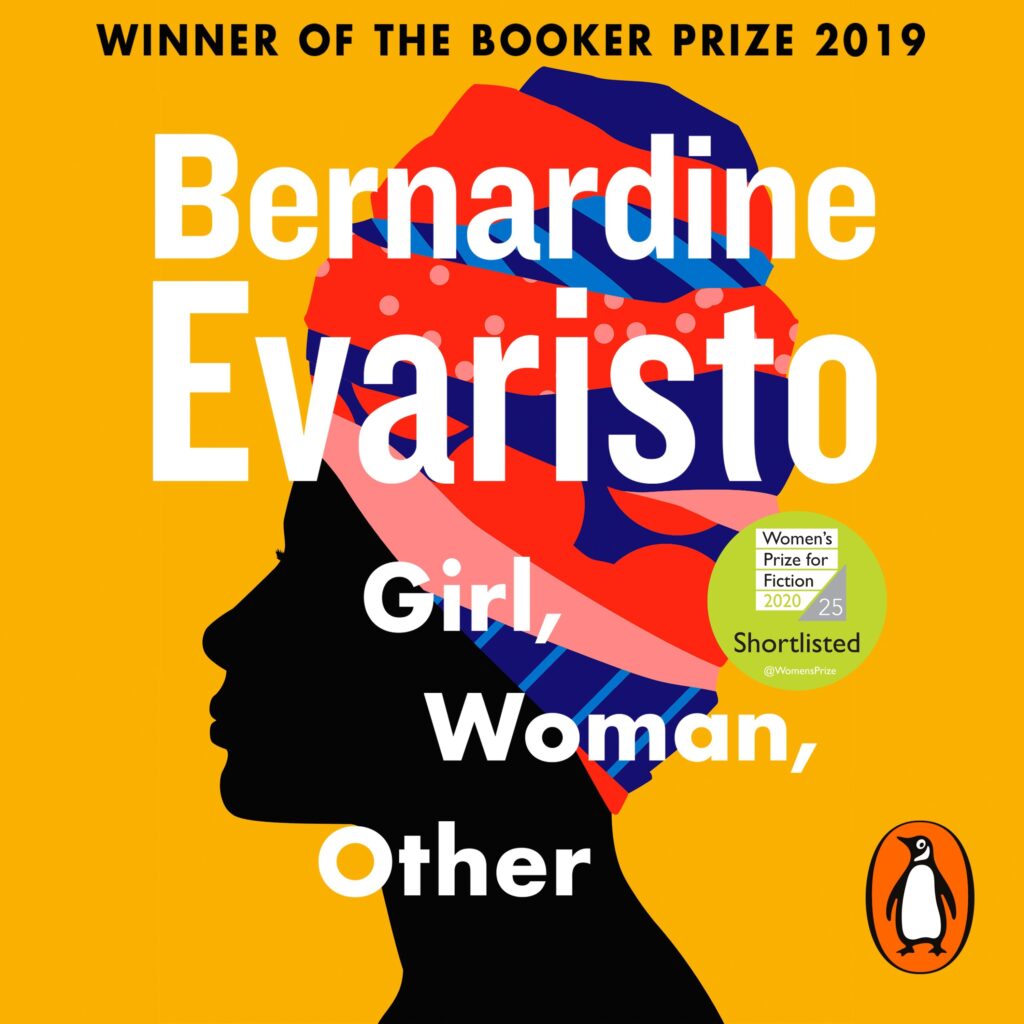
Quick back story: I found this book in the most unlikely place—the bookstore section of a supermarket. I had never seen it before, it was never recommended to me, I just picked it up on a whim
But by the time I finished reading it, I had only one conclusion: forget fancy bookstores—supermarkets are the new literary goldmines.
Who knew the best reads were hiding between the canned beans and checkout lines?
Anyway…
The novel follows the lives of twelve characters, primarily black British women and nonbinary individuals, with diverse backgrounds and experiences, across generations.
Each of the twelve characters has their own chapter, but their lives intersect in various ways—through family, friendships, love, or shared history.
The novel explores several themes, such as intersectionality and identity: It delves into the complexities of race, gender, class, and sexuality, showing how these aspects intersect in the lives of these Black British women (and nonbinary individuals).
Each character navigates their own unique struggles and privileges, highlighting the diversity within marginalized groups.
It also explores womanhood and feminism across generations, cultures, and personal beliefs. It presents both radical feminists and those who resist feminism, questioning how feminism is experienced and understood by different women.
LGBTQ+ characters are included in the novel, and the spectrum of experiences depicted—ranging from queer love to gender nonconformity—reflects the evolving conversations around sexuality and gender fluidity.
The novel also does a great job in its exploration of class and socioeconomic mobility.
The characters come from different social classes, illustrating the impact of economic privilege (or lack thereof) on opportunities, self-perception, and life choices.
Some characters rise through education and career success, while others struggle against systemic barriers.
I found that I resonated with some of the stories in the novel; in fact, some of the relationships, problems, ambitions, desires, and disappointments, depicted mirrored my own.
So, ultimately this is a novel about the human experience with all its messiness, complexity, and nuances.
It was impossible to put it down, so it’s no surprise it won Bernardine the 2019 Booker Prize.
I really loved its poetic, free-flowing, stream-of-consciousness approach that pulled me in so deeply. It’s like I wasn’t just reading—I was living inside the characters’ heads.
Oh, and its lack of punctuation? What a bold flex!
4. My Year of Rest and Relaxation by Ottessa Moshfegh
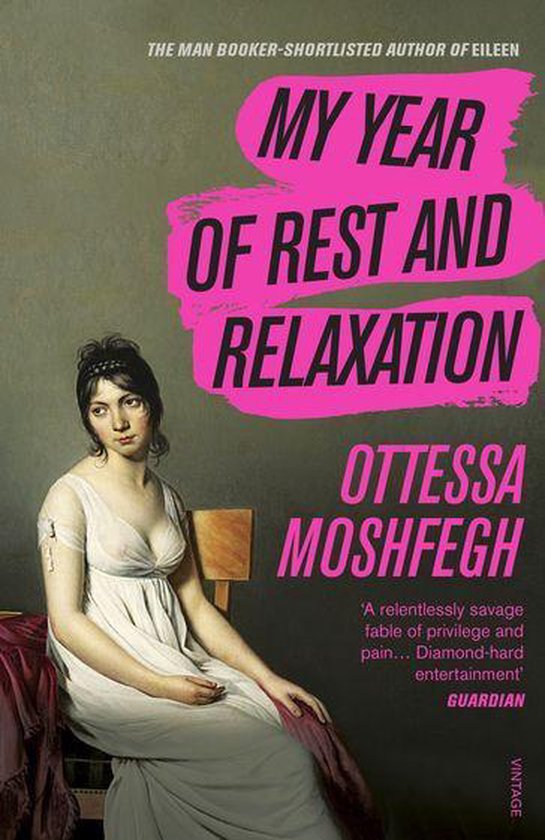
The moment I heard about this book, I knew I needed it—immediately.
The title alone had me in a chokehold: it was so compelling. So, when I finally spotted it in the bookstore, there was no debate, no hesitation—I had to have it.
This is a darkly humorous and deeply unsettling novel that explores some pretty heavy topics like grief, trauma, and existential despair.
It follows a young, beautiful, wealthy, unnamed protagonist who struggles with depression and trauma but avoids addressing her issues directly.
She feels detached from the world, her emotions, and even herself. Underneath her apathy lies unresolved grief over her parents’ deaths and past experiences.
So, she decides to spend an entire year sedated, sleeping her life away in an attempt to reset her mind and body.
She does this by relying on a bizarre collection of prescription drugs and guidance from an absurdly incompetent psychiatrist.
Her “year of rest” can be seen as a subconscious effort to escape the emptiness and pain she feels, and a desire to process these buried emotions.
While her approach may seem bizarre and extreme, it reflects the complexity of mental health and the allure of avoidance.
I mean, we’ve all had those moments when we felt the need to isolate and hibernate somewhere, for some time, when we were dealing with our struggles, hoping to emerge stronger and transformed.
Although I found her privilege and self-centeredness alienating—let’s face it, not everyone can afford to disappear for a year—I couldn’t help but appreciate the novel’s raw, unfiltered honesty about the darker sides of human nature.
The protagonist’s deadpan narration was a standout feature for me, I liked the blended moments of absurd hilarity with an unsettling sense of emptiness. It made the reading experience both uncomfortable and oddly cathartic.
Overall, this is a compelling and unforgettable book.
If you enjoy introspective, character-driven fiction with a sharp, dark edge, you’ll find My Year of Rest and Relaxation well worth the read.
5. Educated by Tara Westover
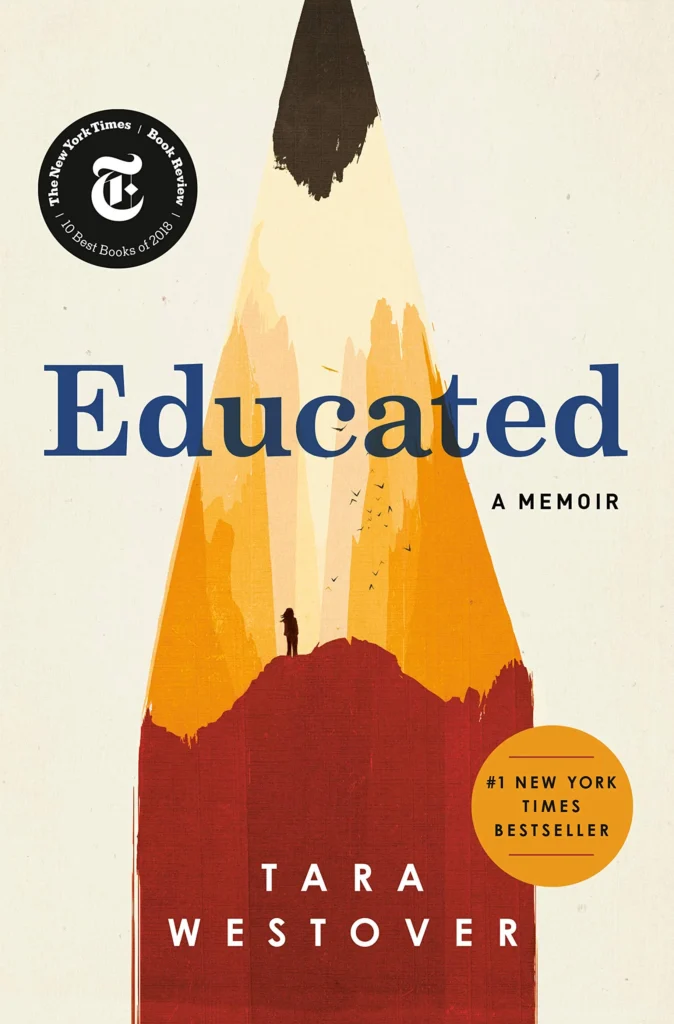
Educated is a memoir that recounts Tara Westover’s journey from a survivalist family in rural Idaho to earning a PhD from Cambridge University.
This book highlights the transformative power of education and personal growth.
Not just academic learning, but the kind of intellectual and emotional awakening that allows a person to see the world differently.
The book follows a traditional coming-of-age structure. So, we follow Tara who is born to strict, religiously fundamentalist parents, and grows up without formal schooling, medical care, or exposure to mainstream society because her father is deeply paranoid about government interference, and so keeps the family isolated.
Tara, however, teaches herself enough to pass the ACT and gain admission to Brigham Young University.
Tara’s love for education was largely inspired by her older brother Tyler Westover. Unlike the rest of their family, Tyler was passionate about learning and encouraged Tara to pursue education.
When he left home to attend college, this planted the idea in Tara’s mind that she could do the same, despite their family’s opposition to formal schooling.
While at this university, Tara’s world expanded as she learned about the Holocaust and the Civil Rights Movement for the first time and this marked a pivotal moment in her journey toward independent thought.
Trauma at the hands of family is another central theme explored in the book, as it portrays the painful reality of abusive family relationships.
For example, Tara’s father has a mental illness that manifests in extreme religious paranoia, leading him to reject modern medicine, formal education, and government institutions.
Her brother, Shawn, is physically and emotionally abusive, yet her parents either dismiss or outright deny his actions.
And her mother, despite moments of warmth and understanding, ultimately sides with her father, prioritizing family unity over her daughter’s safety.
Tara tries to break free from her family, but it’s not easy and she experiences tremendous guilt, self-doubt, and even moments of longing for the past.
Her struggle is not just external but internal—she has to unlearn years of indoctrination and build a new self from scratch.
Though she struggles immensely trying to navigate these complicated family dynamics, she manages—somehow—to continue her education, eventually studying at Harvard and Cambridge.
This book is a must-read for anyone interested in personal transformation, the complexities of family relationships, and the power of knowledge to reshape a life.
I know for a fact that this book inspired me to continue my journey of self-education—because knowledge truly has the power to transform a life tremendously.
6. One Hundred Years of Solitude by Gabriel Garcia Marquez
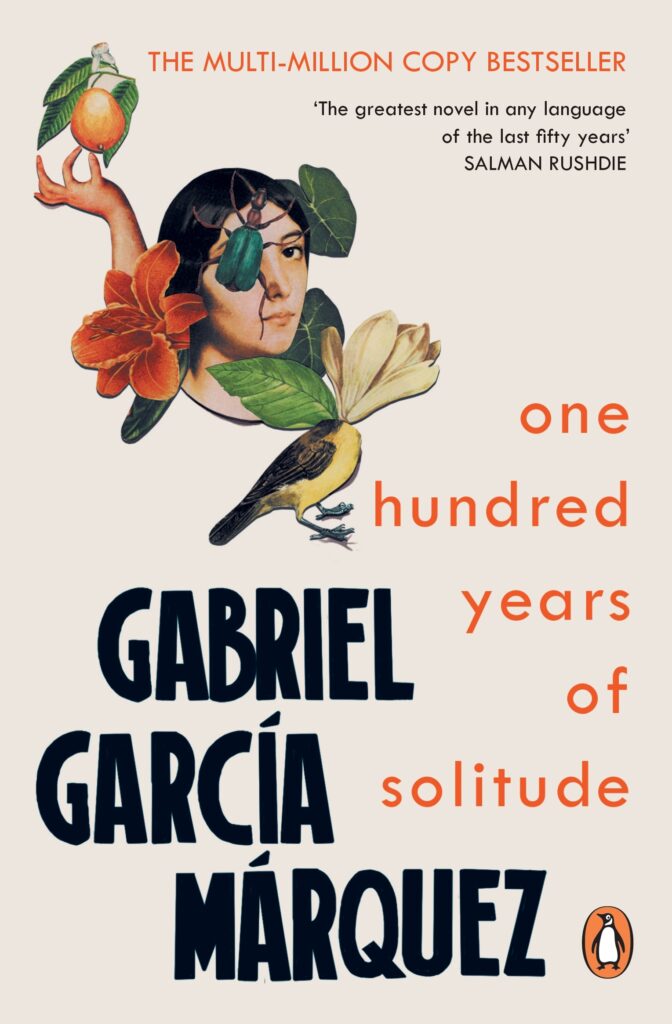
This is the multi-generational story of the Buendía family set in the fictional town of Macondo, which is founded by our two main characters, José Arcadio Buendía and his wife, Úrsula Iguarán.
The book explores themes like solitude, which is the defining trait of the Buendía family and the town of Macondo itself.
Almost every character experiences isolation in some form—whether emotional, physical, or intellectual.
For example, José Arcadio Buendía, the family patriarch, isolates himself in his obsession with alchemy and knowledge, leading to his eventual madness.
Colonel Aureliano Buendía, a key figure in the civil wars depicted in the book, distances himself from human emotions, becoming a cold and solitary leader.
Fernanda del Carpio, the conservative matriarch, isolates herself due to her rigid beliefs, creating a cold and distant household.
Another major theme explored is the cyclical nature of history. The novel presents history as something that repeats itself in a never-ending cycle.
This is symbolized by the repetition of names (many characters are named José Arcadio or Aureliano) and there are recurring patterns of war, love, and solitude.
The fragility of history and how history is often forgotten, manipulated, or ignored is something that’s depicted in the novel.
For example, the townspeople suffer an insomnia plague and forget the names and functions of objects.
They however write labels on everything to help them remember, but this method eventually fails.
There’s also a massacre that occurs in the book of the banana workers, but their deaths were erased from official records.
As a warning, I should inform you that this book has some pretty confronting elements, especially when it comes to the depictions of wars and the exploration of themes around colonialism and modernization.
So, you should definitely look up the trigger warnings.
The colonialism and modernization themes are explored with the arrival of the banana company which marks the turning point from innocence to corruption.
The company exploits Macondo’s resources, treats its workers brutally, and eventually abandons the town after a massacre, leaving devastation in its wake.
This was the first book I’ve read with magical realism elements, and García Márquez did a phenomenal job of weaving fantastical elements seamlessly into the everyday life of the characters.
For example, we have the ghost of Prudencio Aguilar that haunted José Arcadio Buendía; Remedios the Beauty who ascended to the heavens instead of dying; and Melquíades’ prophecies, which predicted the future of Macondo, to name but a few.
This was an incredibly compelling book, and I’ve never encountered anything like it before. I highly, highly recommend it.
7. Convenient Store Woman by Sayaka Murata
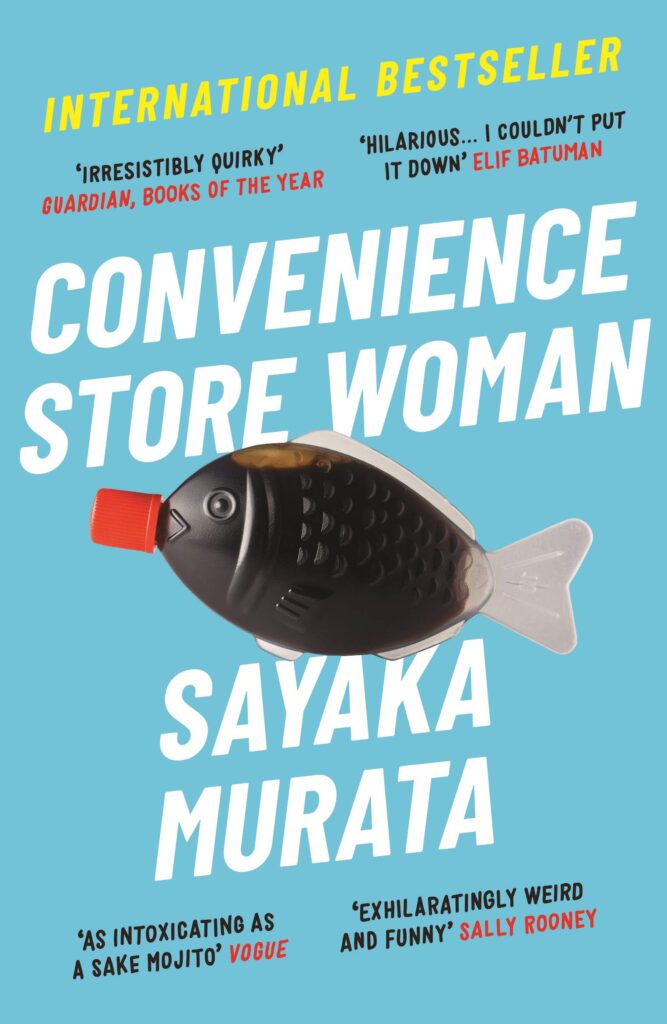
This book is deceptively simple, yet it carries profound commentary on social norms, capitalism, gender expectations, and identity.
The story follows Keiko Furukura, a 36-year-old woman who has worked at the same convenience store (konbini) in Tokyo for 18 years.
Keiko’s portrayal in the book suggests that she may be on the autism spectrum.
For example, her neurodivergence is shown through her struggles to understand emotions and interactions, often observing people and copying their speech patterns to blend in.
She also has difficulties with social cues and has a strong need for routine.
She does not naturally feel romantic or sexual attraction but tries to force herself into these roles because she believes it is expected.
She is happiest in structured environments, like the convenience store, where she finds comfort in its rigid structure and repetitive tasks, which give her life meaning and a sense of purpose.
Keiko is not suffering, yet those around her insist she must be unhappy simply because she is different.
It makes you wonder: Is happiness only valid if it looks like everyone else’s?
There is this stigma about being “different” that’s depicted in the book: Keiko is seen as “wrong” not because she is unhappy, but because she does not fit into conventional molds.
Tensions between society’s expectations and personal fulfillment are a central theme of the novel.
It highlights how society marginalizes those who do not naturally conform, forcing them to perform normalcy to be accepted.
I loved the novel’s critique of capitalism and the modern work culture.
The convenience store itself is a microcosm of capitalist society, and Murata critiques the way labor is structured in two ways:
Firstly, Keiko is depicted as the “Ideal Worker” because she fully dedicates herself to her role, even practicing her greetings and mannerisms at home.
Unlike her co-workers, she does not view the job as a stepping stone; she genuinely finds meaning in it.
Secondly, the novel portrays workers as replaceable cogs.
The employees of the convenience store are expected to follow a script, be cheerful, and suppress their individuality to keep the store running smoothly.
So, when Keiko falls ill, she is quickly replaced, showing how workers are disposable in a capitalist system.
The store’s emphasis on efficiency mirrors how modern society values productivity over well-being. People are only valued for their economic output.
Murata also sharply critiques the rigid gender roles in Japanese society.
Keiko’s friends and family pressure her to get married, not out of concern for her happiness, but because a woman her age is expected to have a husband.
They treat her as a “problem” to be solved rather than respecting her contentment with her current life.
The fact that she earns money and supports herself is irrelevant—her true “value” lies in fulfilling a traditional role.
So, she attempts to integrate into “normal” life when she meets Shiraha, a disgruntled, unemployed man with misogynistic views.
He constantly rants about how society has not changed since the Stone Age and how men are still expected to be hunters while women are gatherers.
He resents the pressure to be a provider and instead manipulates Keiko into letting him stay with her.
Ironically, he benefits from the very gender roles he criticizes—he refuses to work yet expects Keiko to take care of him.
He proposes a transactional relationship to ease their respective societal burdens, which Keiko agrees to.
But, she soon realizes that she is happiest as a convenience store worker; so, she breaks up with him and reclaims her autonomy, and her identity outside of social expectations.
I didn’t expect to find such profundity in the pages of this simple book, but Convenience Store Woman is a quietly radical novel that challenges the definition of a “normal” life, and how we define success, happiness, and purpose.
It’s no wonder it won Murata Japan’s prestigious Akutagawa Prize and became an international bestseller. I 100% recommend you read it.
Conclusion
So, there you have it—seven books that made my 2024 unforgettable.
They’re the kind of stories that stick with you, the ones that whisper in your ear long after you’ve turned the last page, and invite you to see the world a little differently.
So, if you’re looking for novels that don’t just pass the time but challenge the way you think, these are the ones that will keep calling you back for more.
I’m already planning my next round with them—because, as any book lover knows, the best stories are the ones that never truly leave you.
These seven have already earned a permanent spot in my literary rotation—and I have a feeling they’ll do the same for you. Time to grab a bookmark and dive back in.

- Hey there! Welcome to thehealseekers, a space dedicated to helping women explore metaphysics, psychology, and self-development as tools for clarity, purpose, and goal achievement. I hope you find inspiration here.
Latest Post
 Self-developmentMarch 2, 2026Sustainable Success Requires Alignment: Why Effort Alone Is Not Enough
Self-developmentMarch 2, 2026Sustainable Success Requires Alignment: Why Effort Alone Is Not Enough Self-developmentJanuary 30, 2026What to Do When Your Career Looks Right on Paper But Feels Wrong Inside
Self-developmentJanuary 30, 2026What to Do When Your Career Looks Right on Paper But Feels Wrong Inside Self-developmentJanuary 30, 2026You Have an Attention Problem, and It’s Costing You Your Goals
Self-developmentJanuary 30, 2026You Have an Attention Problem, and It’s Costing You Your Goals Self-developmentJanuary 24, 2026How to Turn Your ‘Impossible’ Desires Into Reality
Self-developmentJanuary 24, 2026How to Turn Your ‘Impossible’ Desires Into Reality
